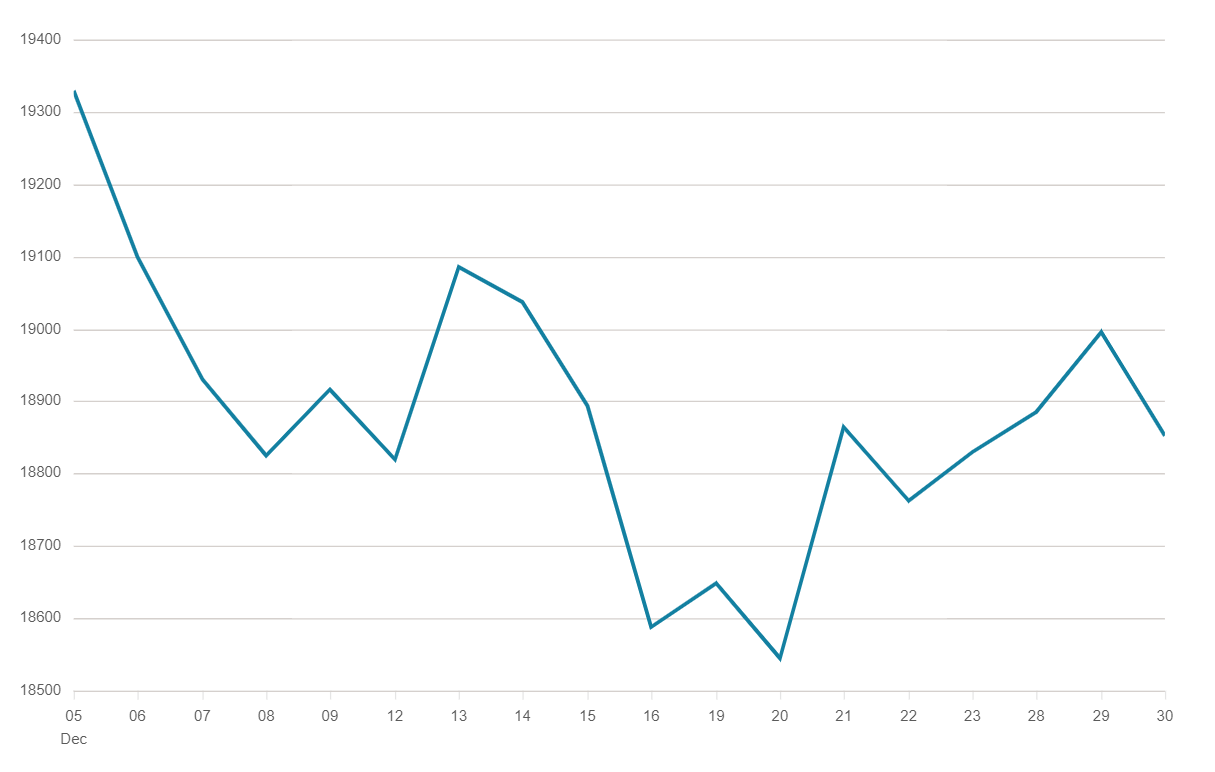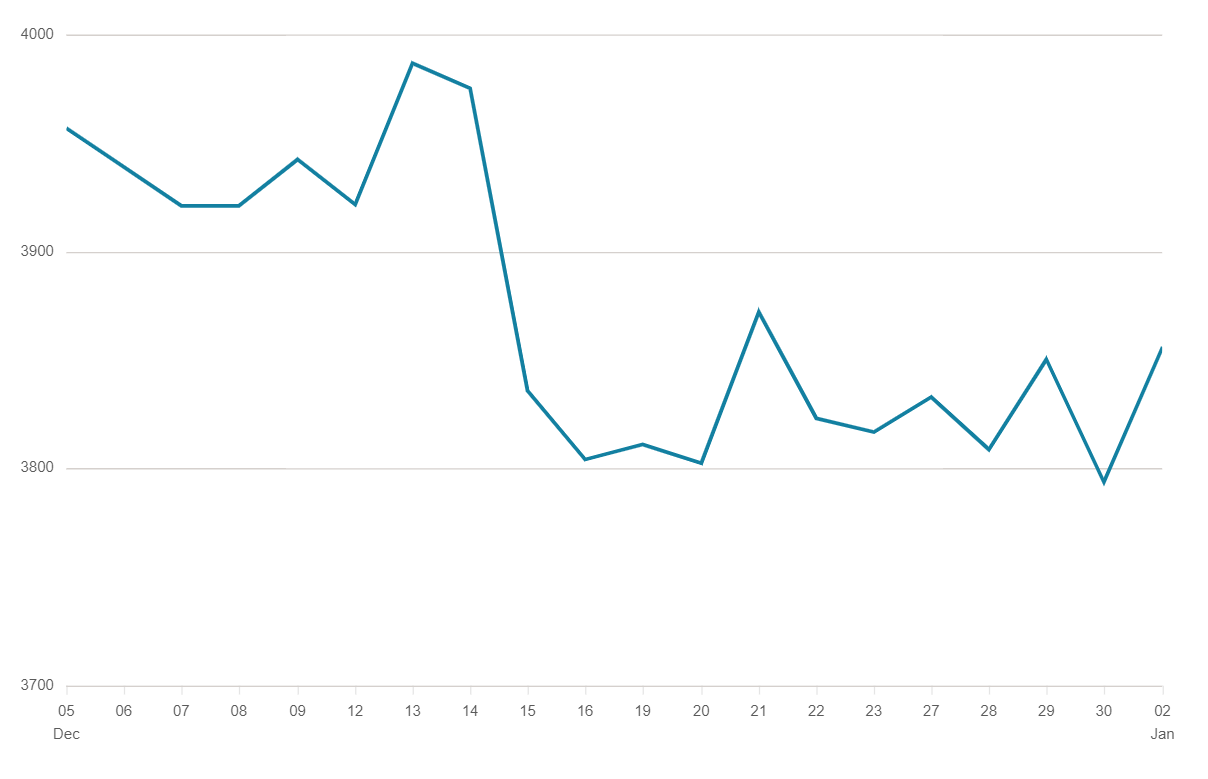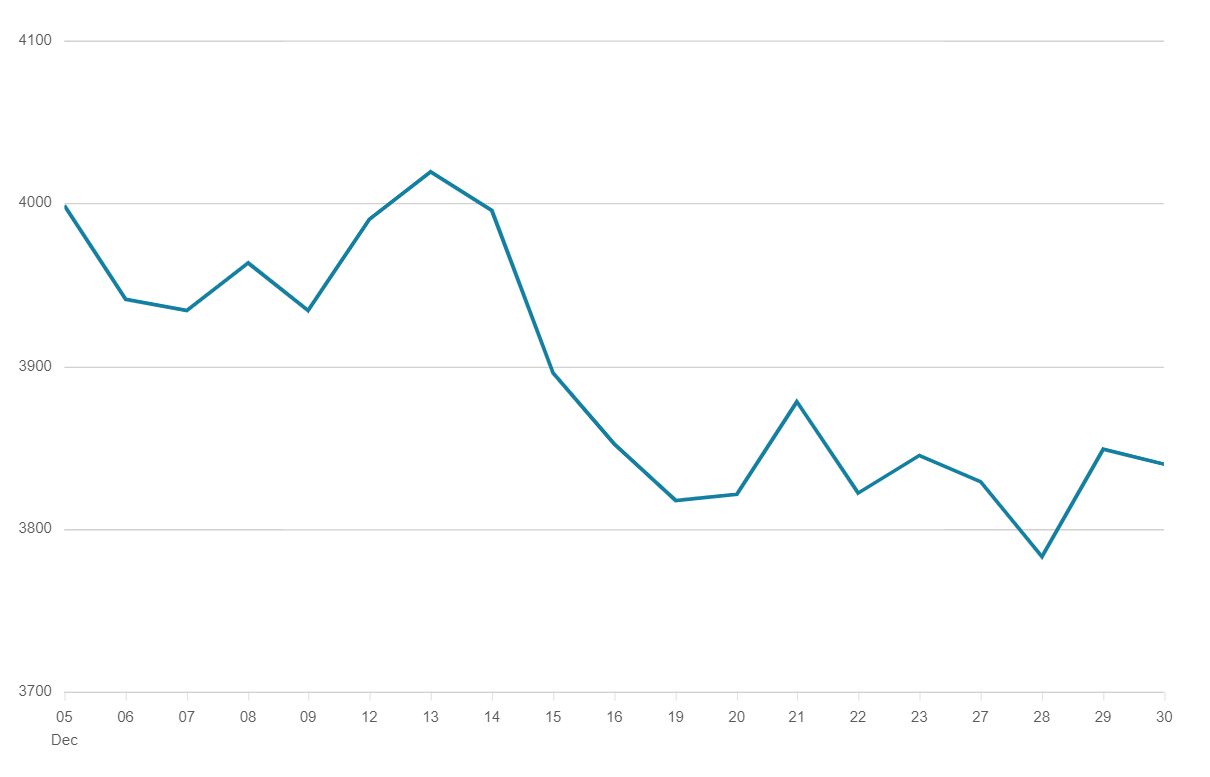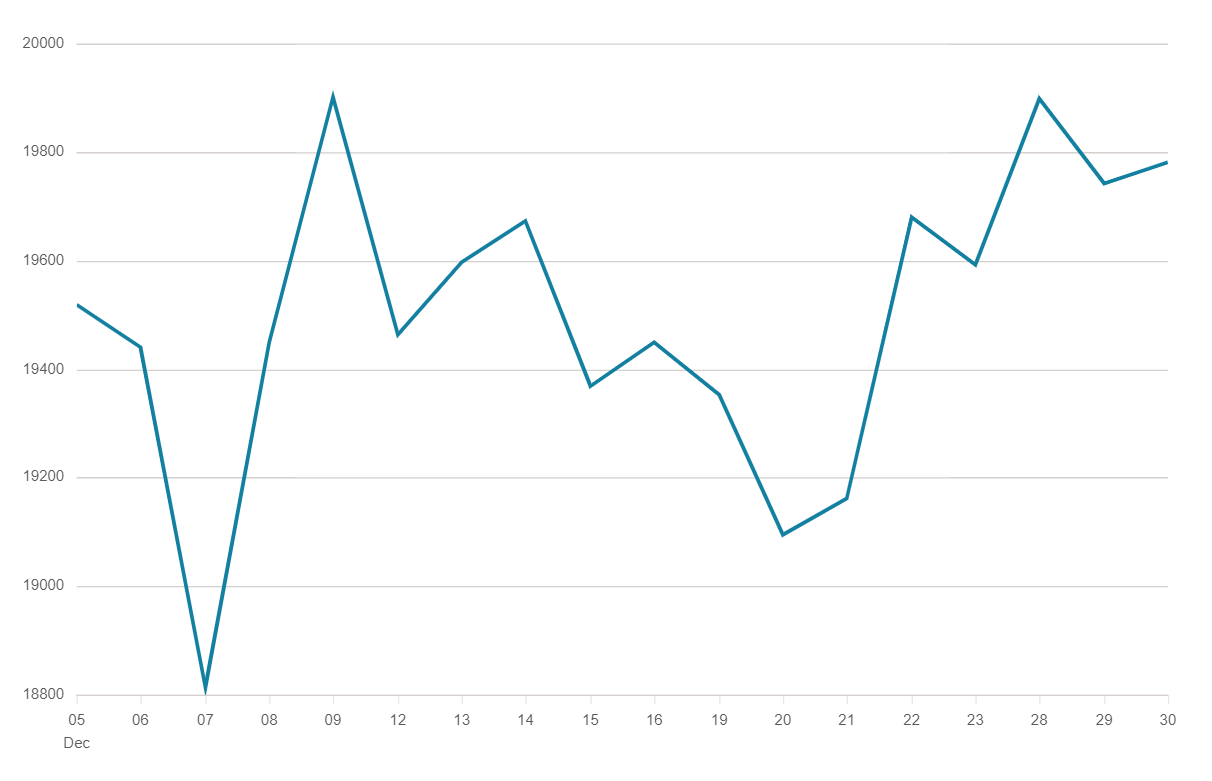
This is part of our monthly pension update series. Catch up on last month’s summary here: What happened to pensions in November 2022?
The curtains have finally closed for 2022, following a disappointing market performance across companies and economies alike. Officially the worst year in global markets since the 2008 financial crisis, undoubtedly investors won’t be calling for an encore. So, what happened to make 2022 such an economically turbulent year?
Keep reading to find out how markets have performed this month and what happened to the global economy in 2022?
What happened to stock markets?
In UK stock markets, the FTSE 250 Index fell by almost 1% in December, bringing the 2022 performance close to -20%.
 Source: BBC Market Data
Source: BBC Market Data
In European stock markets, the EuroStoxx 50 Index fell by over 1% in December, bringing the 2022 performance close to -10%.
 Source: BBC Market Data
Source: BBC Market Data
In US stock markets, the S&P 500 Index fell by almost 4% in December, bringing the 2022 performance close to -20%.
 Source: BBC Market Data
Source: BBC Market Data
In Asian stock markets, the Hang Seng Index rose by over 3% in December, bringing the 2022 performance close to -14%.
 Source: BBC Market Data
Source: BBC Market Data
What happened to the global economy in 2022?
There were several factors causing financial challenges to the world’s economy in 2022: Russia’s ongoing invasion of Ukraine and China’s ‘zero COVID-19 policy’ lockdowns were among the most fiscally disruptive events. As the affected industries (agriculture, energy, and manufacturing) faced supply chain issues, the costs associated rose and were passed from company to consumer.
Rising costs evolved into high levels of inflation, leading to central banks raising interest rates to ease the economic pressure on households. In the UK, a cost-of-living crisis emerged and a recession was announced. Going into 2023, the global economy’s looking weak. Fortunately, inflation’s expected to have peaked in 2022, meaning that 2023 may see the beginning of an economic recovery.
Winners in 2022
Here are the five highest performing company stocks from 2022:
| Company | Sector | Performance |
|---|---|---|
| Occidental Petroleum | Energy | +139.9% |
| Constellation Energy | Utilities | +126.9% |
| Antero Resources | Energy | +111.0% |
| Texas Pacific Land | Energy | +104.1% |
| Signify Health | Healthcare | +101.3% |
Measuring company performances by industry, only the energy sector experienced significant growth last year. As COVID-19 restrictions were lifted consumer demand for energy increased, yet the ongoing invasion of Ukraine created uncertainty over energy supply, leading to soaring prices. In the UK, energy giant Shell was among the outperforming stocks, with a 40% rise in their share price.
While positive news for the investors of today, these price hikes threatened basic household affordability. In reaction, the UK government intervened in May 2022 with the introduction of a windfall tax (a 25% Energy Profits Levy). Again, in the Chancellor’s Autumn Statement the government announced an increase from 25% to 35% from January 2023 and continuing the energy tax until March 2028.
Losers in 2022
Here are the five lowest performing company stocks from 2022:
| Company | Sector | Performance |
|---|---|---|
| Twilio | Communication | -82.6% |
| Coinbase Global | Technology | -82.9% |
| Wayfair | Consumer | -83.3% |
| AppLovin | Technology | -85.7% |
| Affirm Holdings | Technology | -87.3% |
One of the hardest hit industries has been the technology sector. Since 2009, the global economy has enjoyed a 13-year bull market period (with the exception of 2020’s COVID-19 pandemic inspired bear market, which only lasted 33 days). The previous bull market was primarily led by the success of ‘Big tech’ companies like Apple, Microsoft, Amazon, Google, and Tesla. Sadly, 2022’s bear market flipped the optimistic narrative.
Companies that rely on consumer spending, especially if the product’s considered expensive or luxury, tend to suffer the most during a recession. As households cut back on costs, that impacts company profits which in turn reduces their share price. Why do these ‘Big tech’ share prices matter? Because as the world’s biggest (and historically, most lucrative) companies, it’s likely the top 10 holdings in your pension include them.
Summary
We’re currently in a bear market. The good news is global markets have recovered from every bear market in history. Moreover, the value of most global markets not only recovers, but typically goes on to reach new highs. Even the biggest market crash since the Great Depression, the 2008 global financial crisis, was followed by the longest period of sustained growth in market history until the COVID-19 pandemic struck markets in 2020.
You may find yourself rethinking your pension savings during the cost of living crisis, or worrying about whether you’re making the right choices. PensionBee customers can have peace of mind knowing that our pension plans are being managed by some of the world’s biggest money managers. Again, it’s worth remembering that it’s normal and expected for pensions to go up and down in value over time. If you’re over the age of 50 and are considering your retirement options, you may benefit from a free Pension Wise appointment. You can book your appointment online.
This is part of our monthly pension update series. Check out the next month’s summary here: What happened to pensions in January 2023?
Have a question? Get in touch!
You can check out our Plans page to learn how your money is invested in different assets and locations. You can always send comments and questions to our team via engagement@pensionbee.com.
Risk warning
As always with investments, your capital is at risk. The value of your investment can go down as well as up, and you may get back less than you invest. This information should not be regarded as financial advice.




